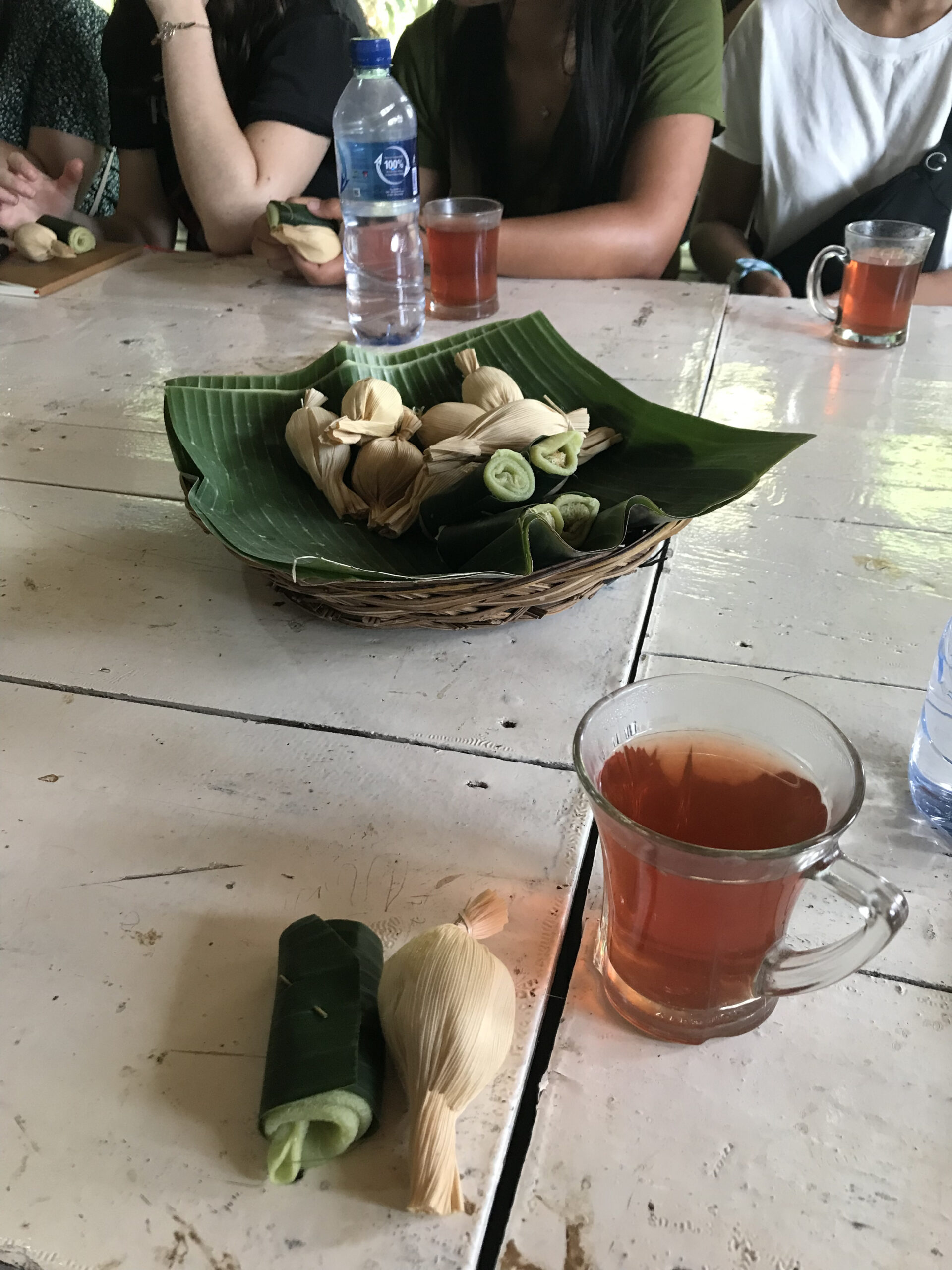
PKP Community Centre
Since my arrival in Bali, I have had a jam-packed schedule every day ranging from orientation to visiting different organizations that my professor had planned for us. There was also time that was spent acclimating to the weather, the surroundings, getting to know my peers, and shopping because I packed very light, and I still needed to figure out how to do laundry in Bali. It was only a matter of time before I would run out of clothes.
One of the organizations that we visited this week that was started by an inspirational woman with a touching story was the PKP Community Centre. It was about an hour drive to the PKP Community Centre where Ibu Sari, the founder of the organization, greeted each of us with a cup of tea made from the plants they had personally grown in the garden and tasty Indonesian desserts which were dadar gulung, a rolled pandan flavored pancaked with shredded coconut inside and another dessert that I think was called klepon which were rice balls stuffed with melted palm sugar inside. I apologize if the latter isn’t called that or is described incorrectly!
As we enjoyed the desserts and tea that was handed to us, Ibu Sari told us about her upbringing and how her mother urged her to get a divorce after witnessing her daughter experienced domestic abuse and had lost 25kgs from it. Ibu Sari agreed to a divorce, but no one told her that it meant she would not be allowed to see her daughter for 12 years. The severe depression that stemmed from not being able to see her daughter which she lost care of at only a few months old and how divorced Balinese women are frowned upon and excluded from society pushed Ibu Sari to one day turn her life around and pursue an education to become a teacher. Eventually, she decided to start PKP to help other women in similar situations with resources, support, and activities such as doing yoga together and teaching them how to cook and garden with the intention of helping these individuals thrive and integrate back into society. Her mom and sister also became a part of the center to assist her. One of their current goals is to raise $50,000 to buy land to create a shelter for those who currently face domestic abuse.
Through Ibu Sari’s story, I learned that in Bali, divorced women can create problems of jealousy in relationships and marriages because the wife is afraid that her husband will be tempted by the divorcee. Instead of working together to uplift and support women in a patriarchal society where domestic abuse can be a prevalent issue, these wives further stigmatize them from society because of their deviation from social norms and an attempt to protect their marriage. As a result, it reinforces domestic abuse, perpetuates the negative societal image of divorced women, and makes it extremely difficult for female divorcees to reintegrate into society. Ibu Sari’s ability to bounce back after many difficult years and still create positive change is admirable, and I hope to carry the same warmth and energy she has as I navigate future life challenges.
As we toured PKP, it was filled with a lot of greenery and plants. She also gave us the opportunity to learn how to design a batik, how to start the process of making coconut oil from scratch, and how to present offerings to the Balinese spirits. Even though I only had time for the coconut oil station, I loved how they use every part of the coconut whether the shell as a plate or the fibers for dye. Sustainability and resourcefulness is definitely something we can learn from them.

